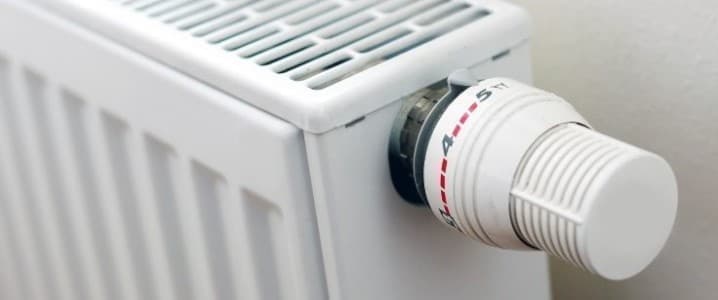Following the Russian invasion of Ukraine and the subsequent global shortage of oil and gas – due to sanctions imposed on Russian energy – governments worldwide have rushed to find alternative sources, as well as encouraging the public to massively reduce their energy usage in a bid to enhance energy security. Political leaders have rapidly introduced new energy policies to increase funding for renewable energy projects, nuclear power, and alternative oil and gas supplies, as well as encouraging energy firms and industries to come up with innovative solutions to help boost energy security. However, as we go into 2023, shifting towards the existing alternatives to Russian energy will not be enough to provide the power and heating needed as demand rises. Therefore, political powers worldwide are encouraging greater frugality when it comes to energy consumption, in a war-like effort to tackle the crisis. Shortly after the Russian invasion of Ukraine, the International Energy Agency (IEA) released a report entitled “Accelerating energy efficiency: What governments can do now to deliver energy savings”. This built upon previous publications focused on reducing the reliance on natural gas in a shift to renewable alternatives. It also supported the ambitious European Commission aim of making Europe independent from Russian fossil fuels by 2030. This is part of Europe’s bigger decarbonization plans, but it will also help ensure that Europe can reduce its reliance on Russia for its energy supply.
The IEA highlighted the need to decrease energy consumption in Europe, in which average dwellings use around double the amount of energy for heating per square meter than in other countries with similar climates. The ongoing Russia-Ukraine conflict demonstrated the need for faster action to reduce Europe’s dependency on both Russia and fossil fuels in general, to ensure the future of its energy security.
Related: Platts Survey: OPEC+ Oil Production Rose By 140,000 Bpd In December
The report focused on decreasing energy consumption by improving the efficiency of European homes and buildings by upgrading insulation, accelerating the installation of heat pumps, installing digital thermostats, and supporting small business infrastructure. The IEA also urged individuals to turn down their heating thermostat by at least one degree. It also recommended the acceleration of sustainable building renovation, although this has been met with resistance during a time of economic crisis with rising inflation. However, this aim has been supported by the introduction of tax incentives and other initiatives across the region. For example, Spain introduced a recovery and resilience plan that will provide around $3.65 billion to encourage people to undertake energy renovation projects.
Over the last year, the EU has focused closely on small and medium-sized enterprises (SMEs), helping them to tackle the financial crisis and stay afloat. The EU and IEA worked together on several initiatives, aimed at enhancing SME resilience through energy savings and energy efficiency. The organizations aimed to help SMEs reduce their short- and long-term energy consumption through energy audits and energy monitoring and control tools, as well as workforce training. The EU and IEA also encouraged governments to support SMEs with tax incentives and other schemes to enable them to invest in technologies for energy efficiency, new energy-efficient equipment, and sustainable renovation projects.
Having tackled SMEs, which the EU highlights as “the backbone of Europe's economy”, countries across Europe are now asking the public to respond more drastically to the energy crisis by cutting their consumption even further. In the U.K., a cross-party committee of MPs determined that a national “war effort” on energy efficiency is required to cut energy bills, reduce climate-heating emissions, and ensure energy security.
A report from the U.K.’s Environmental Audit Committee (EAC) suggests that the government already missed a “crucial window of opportunity” last summer to get homes and businesses to cut their energy consumption. The energy crisis became clear following the Russian invasion of Ukraine early in 2022, but the financial crisis brought on by the resignation of Prime Minister Boris Johnson, followed by the assigning of two new Prime Ministers, overshadowed the energy crisis. The report recommended that funds from the windfall tax on oil and gas companies should be assigned to speed up efficiency funding and fulfill the government’s 2019 manifesto commitment to invest $10.9 billion in energy efficiency, suggesting “A national ‘war effort’ on energy saving and efficiency is required.”
The chair of the EAC, Philip Dunne, explained, “Bold action is needed now.” He added, “We must fix our leaky housing stock, which is a major contributor to greenhouse gas emissions, and wastes our constituents’ hard-earned cash. The government could have gone further and faster.”
After almost a year of calls for greater energy efficiency and enhanced government efforts to reduce their reliance on Russia’s oil and gas supplies, more must be done to achieve greater energy security. New analyses show that governments can introduce incentives and schemes to accelerate energy efficiency improvements, as well as policies to ensure that new infrastructure is approached more sustainably. But, according to the U.K., it will require a war effort to achieve these goals.
By Felicity Bradstock for Oilprice.com
More Top Reads From Oilprice.com:
- Global LNG Imports Hit A Record High In 2022
- Why Oil’s 7-Month Downturn May Be About To Reverse
- 2023: Expect A Financial Crash And Major Changes In Global Energy Markets


















How many barrels of oil are coming out of Libya *RIGHT NOW* again? It ain't like Europe's electrical grid...or what's left of it anyways...is run by oil same said be true of the USA plus Canada...even Puerto Rico now.
People whining about windfall profits at $xom Exxon? Wait until $IBM International Business Machines reports their top and bottom line numbers!
*THAT'S REAL MONEY.*
Long $intc Intel strong but